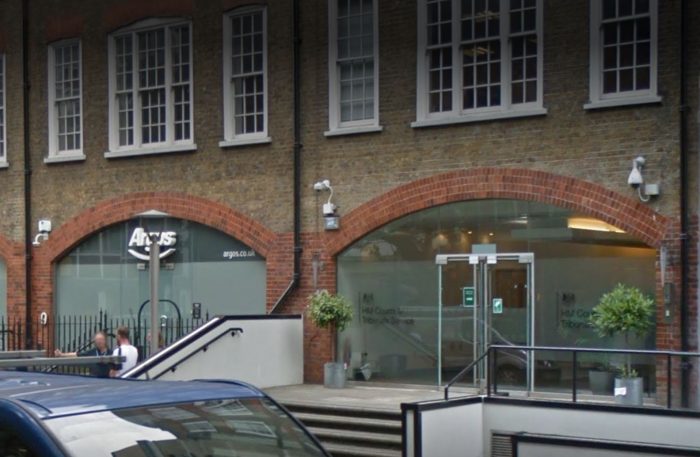Hi,
So this is a quick summary of a hearing I attended at the London First-tier Residential Property Tribunal (RPT) on 26/07/2018, just to give a flavour of how things are dealt with at a hearing on a Rent Repayment Order (RRO) application.
The RRO application was from 4 tenants in an HMO in Camden. Camden has an Additional licence scheme, so just 3 or more occupants forming 2 or more households means the let property has to be licensed. This is more stringent than the national housing law regarding HMOs. So it is worth bearing in mind for those considering to make a claim in Camden because you will be more likely to succeed.
There were 3 judges: Ms. S. Coughlin, Ms N. Hawkes and Mr A. Ring; 2 tenants came as representatives for all 4; the landlord sent his representative, Mr Pearl, who we believe was not a solicitor but a “property professional” of some sort (works in a company called PropertyMark).
1st comments from the judges were that the “bundles” (of evidence from both sides) should be paginated throughout: the landlord had presented a bundle with separate numbering for different sections…naughty! Also a ring binder would have been good!
Dates were checked. Also if Housing Benefit (HB) or Universal Credit (UC) had been used to pay any of the rent. The judges explained the process and that a RRO is made according to the profit of the landlord, ie rent after allowable deductions (see discussion of this at GetRentBack here). Also that any HB or UC is taken gross from the rental income for the credit of the Local Authority before any deductions are accounted for. Tenants get what is left over- nice!
Don’t let that put you off though. The repayment orders remain considerable even after landlord expenses. The total rent being reclaimed here was £26,476.69, whereas the landlord’s claimed expenses amounted to around £2700, of which many items were probably not allowable- see below.
The landlord had a list of expenses, including obvious ‘capital’ items (so not really ongoing expenses) such as furniture and tried to add some more at this hearing. This was not allowed as they weren’t in the bundle. It is important to note that any evidence not provided ahead of the hearing cannot be brought forward at the hearing.
Many of the expenses related to trying to fix a mould problem. One of the judges said that they consider the landlord’s conduct in relation to dealing with such problems and increase the RRO if their conduct is found inadequate.
So the format then gets going:
⦁ The tenants present their case by reading a written statement
⦁ The landlord/representative then has a chance to respond
⦁ Landlord/representative then makes a statement
⦁ Tenants can respond
The tenants claimed that the landlord had increased the rent (from £480/week to £615/week, split roughly 4 ways among the 4 tenants), he had replaced tables and chairs without notice, not dealt seriously with tenants’ concerns (eg. just sprayed over the mould etc.). Mr Pearl tried to blame the tenants or Camden Council for the mould and the frequent blockage of the kitchen sink!
In between, of course, the judges can make comments, ask for clarity or rule how proceedings should move along.
The judges picked up on Mr Pearl’s unapologetic approach to the tenants. He also was constantly trying to interrupt them. Judge Hawkes commented that Mr Pearl’s lack of apology and expression of regret on behalf of the landlord reflects on landlord’s own character and lack of remorse.
The judges declared that there has not been any Upper Tribunal decisions since the 2016 Act to use as guidance in how a RRO should be calculated. They seemed to use guidance from RRO decisions from the 2004 Act, ie that 100% of the rent would not be ordered as a repayment. . They explained the appeals process and that it would take up to 6 weeks to reach a decision. Will post the decision here when it comes….
Benji

Taking account of how well the landlord fixed the mould/drains or not…this seems to go against the guidance in the Upper Tribunal case under the 2004 Act: Parker v Waller. See Case Law discussion at GetRentBack.org…
Maybe this means under the 2016 Act consideration of landlords’ conduct is more general. That would certainly fit with the 2016 Act intention to punish rogue landlords. Pity the judges are still allowing this landlord to ask consideration for every penny of expense he can scrape together…that’s surely got to change!
At Flat Justice, we expect this state of affairs to change fairly soon. The housing law does not in fact state that landlord expenses should be deducted from the order. Doing so seems to be a hangover from a case pertaining to the 2004 ruling, which set this precedent. Given that there have not been any Upper Tribunal hearings since the 2016 ruling, all it would take is for somebody to appeal an RRO and set a precedent for having all their rent repaid, including landlord expenses. We believe there are extremely good grounds to do so and that it will only be a matter of who moves first. That being said, the repayment orders remain considerable even with landlord expenses deducted and don’t forget the landlord needs to provide evidence of each expense claimed in advance of the hearing.